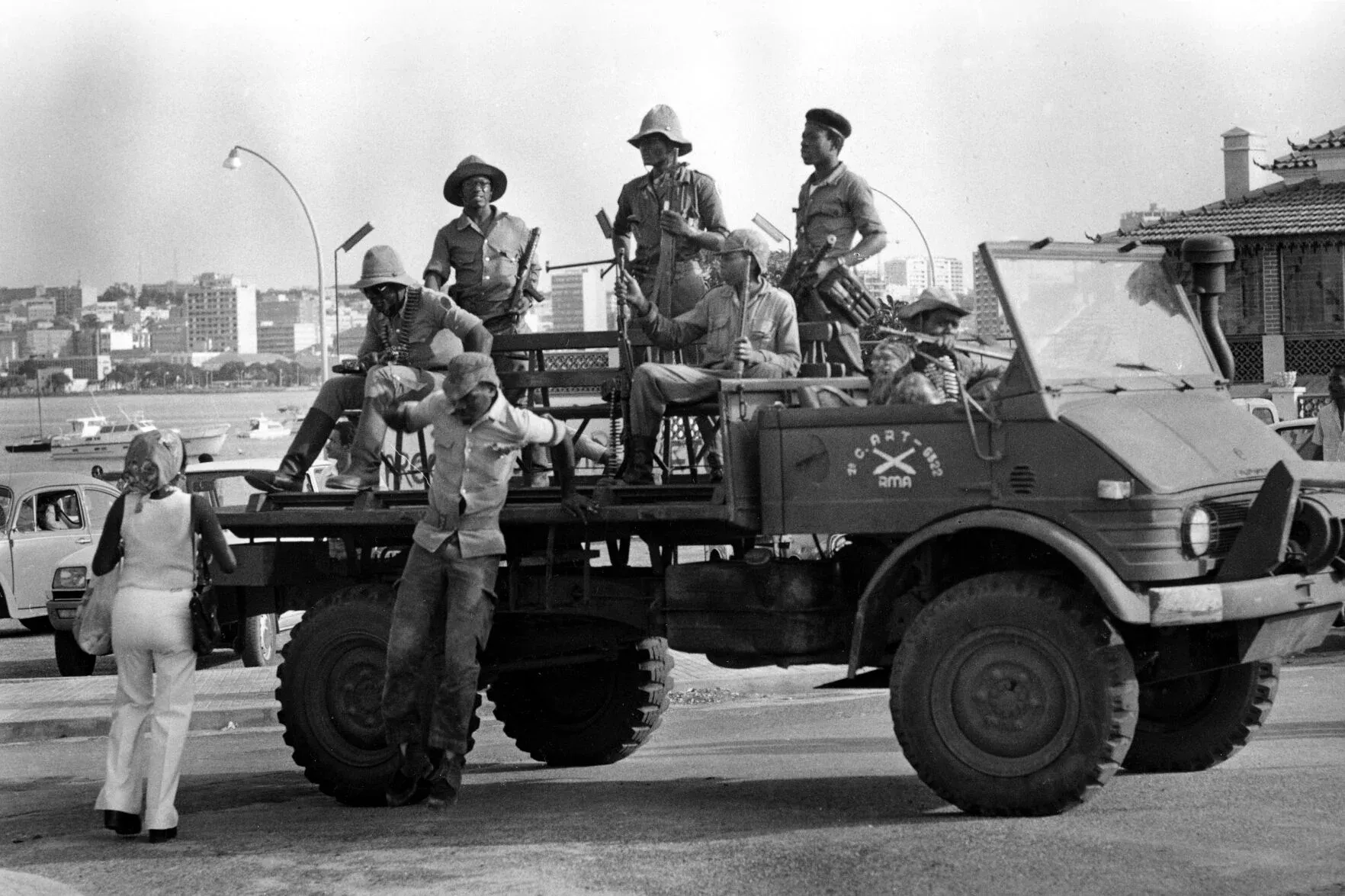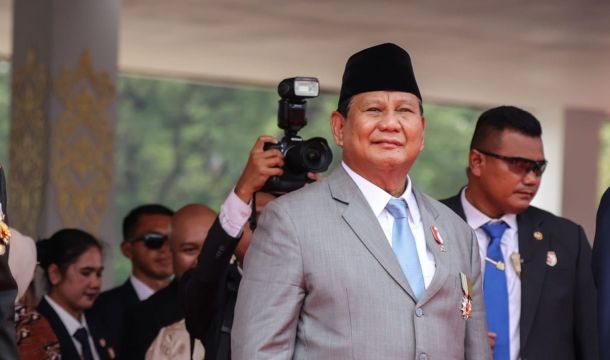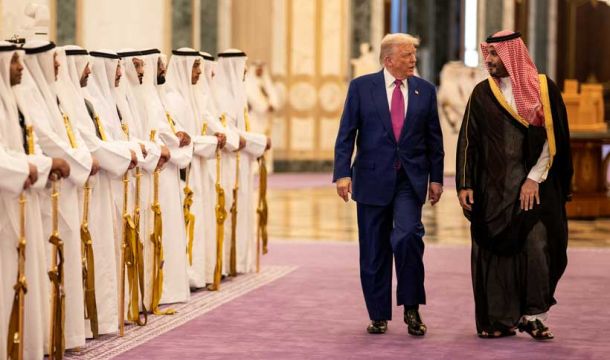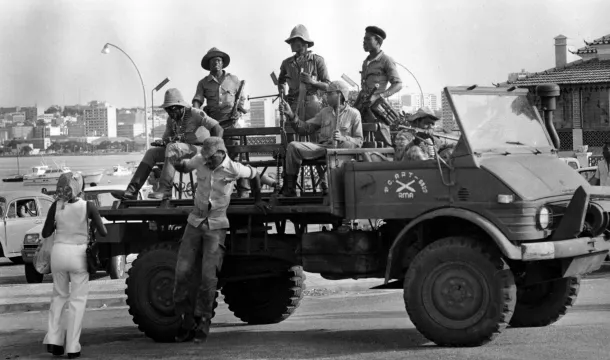Angola at 50: From proxy war to partnership
In the early hours of a humid November morning in 1975, the runway at Luanda’s airport was alive with anxiety and the roar of a jet engine. Cabinda Gulf Oil, now Chevron, had chartered a South African Airways flight to evacuate its international employees’ dependents, the women and children, from Angola’s capital.
The employees themselves remained behind, outside Luanda in Cabinda, sleeping on the beach or staying offshore on oil platforms. I was among those boarding that flight for Johannesburg, leaving behind my home, my father, friends and a nation on the cusp of both liberation and tragedy.
The exodus came just months after Portugal’s Carnation Revolution ended nearly five decades of dictatorship in Lisbon. When the new government vowed to decolonize rapidly, Portuguese troops began withdrawing from Angola and leaving behind a dangerous power vacuum. Rival liberation movements — the Marxist MPLA, the Western-backed FNLA and the nationalist UNITA — rushed to fill it.
As Portuguese authority crumbled, Luanda erupted in ethnic and political violence. I remember my father pulling me from my bedroom as gunfire echoed outside our window. Foreigners became targets. With the colonial army melting away, law and order collapsed.
A long and bitter struggle for control of Angola had begun.
Tuesday will mark 50 years of Angolan independence. For much of that half-century, the country has known more war than peace. The newly independent Angola became the stage for one of the Cold War’s most violent proxy conflicts: In 1975, Soviet Premier Leonid Brezhnev and Cuba’s Fidel Castro poured men and materiel into Luanda to back the Marxist MPLA, which had seized power. At its height, Cuba deployed almost 50,000 troops and thousands of Soviet advisers.
For Charleston, the anniversary of Angola’s independence carries a deeper resonance. Roughly 40 percent of enslaved Africans who arrived in Charleston came from the region that is now Angola. That connection binds Charleston to Angola in ways both painful and profound.
The United States, still reeling from Vietnam, struggled to decide how far to engage. Secretary of State Henry Kissinger pressed to counter the communist advance, but Congress, wary of another distant entanglement, enacted the Clark Amendment in 1976, banning U.S. aid to Angolan non-communist factions.
Kissinger issued a warning, saying, “Angola represents the first time that the Soviets have moved militarily, at long distance, to impose a regime of their choice; it is the first time the U.S. has failed to respond to Soviet military moves outside the Soviet orbit, and it is the first time that Congress has halted national action in the middle of a crisis.”
That restriction held until 1985 when, under pressure from the Reagan administration, Congress voted for its repeal. By the early 1990s, momentum shifted again. I was then a young congressional assistant involved in supporting Jonas Savimbi’s UNITA. We believed that democratic elections could finally bring stability.
In 1992, Angolans went to the polls in their first multiparty election. While I had anticipated a reelected George H.W. Bush would recognize a UNITA victory, the following year President Bill Clinton formally recognized the MPLA as Angola’s government, marking a turning point in U.S.–Angola relations. It was an early lesson in the complexities of post-Cold War diplomacy: Ideals often meet reality in uneven ways.
Today, Angola stands transformed. Along the Atlantic coast from the old Portuguese Fortaleza de São Miguel, the Marginal de Luanda stretches below, a graceful curve of colonial facades now framed by gleaming, Chinese-financed towers. The skyline reflects both history and ambition; a city once scarred by conflict now pulses with commerce. Angola’s government seeks to balance old loyalties with new partnerships, yet the echoes of the Cold War contest remain unmistakable.
Beijing’s engagement through President Xi’s Belt and Road Initiative has poured billions of dollars into infrastructure, from highways to refineries, making Angola one of China’s largest African partners. Washington, after years of relative neglect, is re-engaging. In December, President Joe Biden visited Angola. His trip highlighted a $2.8 billion U.S.-backed transparent investment in the Lobito Corridor railway, linking Angola, the DRC and Zambia, key to securing future supplies of critical minerals.
Angola’s experience also reflects broader truths about Africa. For decades, outsiders saw it merely as a prize: Lisbon’s colony, Moscow’s client, Havana’s outpost and now Beijing’s partner. Yet Angola is proudly asserting its own vision. Under President João Lourenço, Luanda has moved to diversify its economy, root out corruption and strengthen ties with democratic nations. The country’s progress remains uneven, but its trajectory is unmistakably upward.
As the United States and China compete, the lessons of Angola’s past should temper our ambitions. The Cold War’s proxy battles left deep scars in Africa, at times strengthening autocrats while weakening institutions. America’s challenge now is not to replay the past.
The story that began for me on a dark runway 50 years ago is not finished. Angola’s independence was born in violence, its peace negotiated through exhaustion and its promise renewed by persistence.
This milestone year invites reflection on what both our nations have endured and what they might achieve together. From the oilfields of Cabinda to the classrooms of Charleston, Angola’s history is not remote; it is part of our own.
This article first appeared in: https://www.postandcourier.com/opinion/commentary/angola-independence-history-charleston-connection/article_59fa6e02-397d-4261-8e7f-6bf1055e4b6c.html
David A. Merkel is visiting distinguished fellow for diplomacy and global leadership at the College of Charleston, and an associate with LSE IDEAS. He previously served as deputy assistant secretary of state and director on the National Security Council.


More press articles

Southeast Asia Can’t Hedge on the US-China Rivalry Forever

From Pariah to Partner: Can the U.S. Make Saudi Arabia a Real Ally?
